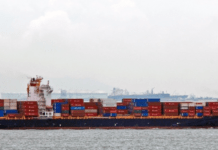
Fuel suppliers and not vessel owners and operators should be the target of regulators, including the European Commission (EC) under the Renewable Energy Directive (RED), according to the European Community Shipowners’ Association (ECSA).
[s2If is_user_logged_in()]ECSA have told the EC in a response to a public consultation by the EC on the revision of the EU Emissions Trading System and on the RED that their focus should be global and should not target the end users of fuels, but should rather focus on incentives that will encourage the production of renewable energy.
“A global approach must be the cornerstone of the EU’s policies and any regional measures would risk undermining the international negotiations at the IMO level. As the shipping industry is fully committed to decarbonisation, success hinges primarily on the introduction of zero- or low-emission, safe and widely available alternative fuels, which do not yet exist,” said ECSA.
According to shipowners, the EU should have planned to establish a fund, raised from revenues from market-based measures (MBM), using the revenue to finance Research and Development (R&D) projects for new fuels “and to bridge the price gap between new and conventional fuels.”
Meanwhile, regulators must also give Incentives and “require fuel suppliers to include a certain percentage of low- and zero carbon fuels in their offering by introducing sub-targets and a higher multiplier for low- and zero-carbon fuels under RED.”
Martin Dorsman, ECSA secretary-general said, “As with the uptake of all new fuels, the chicken-and-egg dilemma can only be addressed by the introduction of appropriate requirements for fuel suppliers. A fund under an MBM could support the uptake of these fuels.”
ECSA is alarmed that the FuelEU Maritime measures which target fuel users, but do not address the production of fuels.
“We are quite concerned that should the FuelEU Maritime put forward a fuel standard as a requirement for ships, such a measure would seriously disrupt the bunkering market and would be challenging to enforce,” argued Dorsman, “The chicken-and-egg dilemma can only be addressed by the introduction of appropriate requirements for fuel suppliers,” he added.
[/s2If]
[s2If !is_user_logged_in()]Please login or register to read the rest of the story[/s2If]








